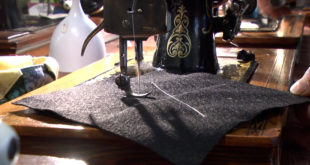The Western Upper Peninsula District Health Department has issued a Public Health Advisory because of concerns about the number of people entering the region who have, for the past few months, been living somewhere else.
WUPHD Health Officer Kate Beer says these people include seasonal residents returning from winter homes in the south, people who are moving from other areas to vacation homes they maintain in our region, and those who have taken shelter in their recreational vehicles.
Officials are concerned about three things:
– First, the possibility that those who have spent time in other areas, especially those areas where COVID-19 has broken out, could carry the virus to our region.
– Second, the strain that additional people moving into the community will place on supply lines for essentials such as groceries and prescription drugs.
– Third, the extra burden that will be placed on the local health care system if we do see a significant COVID-19 outbreak.
The Health Department is recommending that anyone coming to the Western Upper Peninsula from an area where there is a COVID-19 presence self-quarantine for 14 days, whether or not they currently exhibit symptoms.
The advisory also cautions against rustic camping, because of sanitary and weather concerns.
Here is the full Advisory, as issued by the Western U.P. Health Department:
PUBLIC HEALTH ADVISORY
Issued April 6, 2020
The Western Upper Peninsula Health Department issues the following advisory to protect the health of the public in the five-county region:
Western Upper Peninsula Counties (Baraga, Gogebic, Houghton, Keweenaw, and Ontonagon) are seeing an influx of individuals who are seeking shelter from areas with significant COVID-19 community spread or returning from travel outside of these counties. While we understand the desire to seek shelter in our communities with fewer COVID-19 cases, this potentially poses an unnecessary risk to all residents of the Western Upper Peninsula.
The increased population to the area places a substantial strain on our communities as travelers seek supplies, such as groceries and toiletries, as well as potentially needing health care in the event they become sick.
During this public health crisis, many rural communities may not be equipped with personnel, supplies or resources for a surge in population.
If you still choose to travel to your seasonal home or return home from travel, the Western Upper Peninsula Health Department is advising that you abide by the following guidelines:
1. If you are sick, stay at home and do not leave your residence.
2. If you have symptoms suggestive of COVID-19, contact your healthcare provider for assistance.
3. All individuals traveling to seasonal homes or returning home from areas with community spread should self-quarantine for 14 days upon arrival to your destination.
4. Following the 14-day self-quarantine period, please obey the Governor’s “Stay at Home” order and do not go out unless absolutely necessary.
5. All residents, whether full time or seasonal, should adhere to the Governor’s Stay at Home order and only venture out to obtain essential supplies and services when absolutely necessary. If you do need to go out, please adhere to social distancing protocols and limit the number of people going out for supplies or services.
Also, as campgrounds in the area close, remote camping is not a safe alternative. Remote locations do not offer sanitary conditions, particularly for those who become ill. Weather conditions vary extensively at this
time of year. Emergency personnel may not be able to access remote locations.
By following these simple guidelines, the risk for spreading COVID-19 lowers significantly, thus protecting everyone who lives, works, and plays in the beautiful Western Upper Peninsula.
 Keweenaw Report Your Source for Local News and Sports
Keweenaw Report Your Source for Local News and Sports





